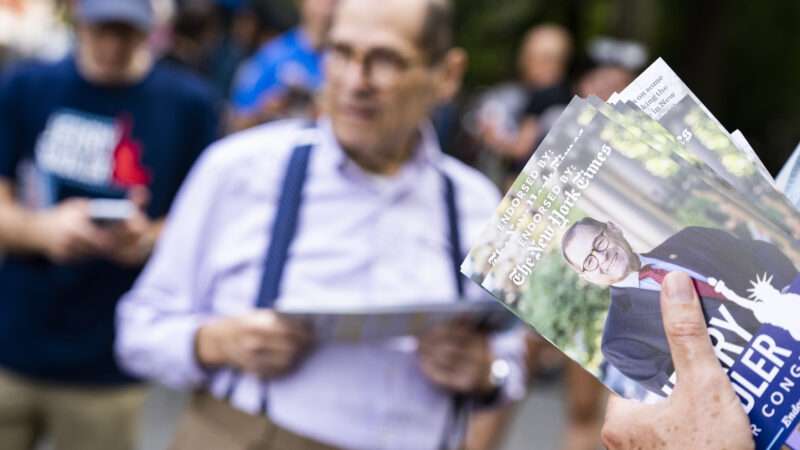Allison Publications, LLC v. Doe, decided last week by the Texas Court of Appeals (Fort Worth), in an opinion by Justice Brian Walker, joined by Justice Wade Birdwell and Judge Ruben Gonzalez, involves a rare libel lawsuit by a publisher:
Allison publishes regional and specialty publications in Texas, such as D Magazine. According to Allison, in April 2021, three of its advertisers received phone calls from a person who identified herself as a journalist named “Maya” or “Maya Pembledon.” The caller allegedly told the advertisers that Allison is a racist publisher and encouraged them to cease advertising with Allison. The advertisers expressed concerns to Allison after receiving the calls, and at least one decided not to renew its advertising contract with Allison.
More specifically, according to the amended petition (cf. this post, where I criticized the original petition, which was much vaguer):
While the total number of Doe’s false and disparaging calls to Plaintiff’s advertisers is not yet known, Plaintiff has learned of the following calls beginning in April 2021: (a) Doe called a real estate agency that advertises with Plaintiff, falsely accused Plaintiff of being a racist organization, and stated that the agency should never spend money with Plaintiff and should avoid being associated with Plaintiff; (b) Doe called a photographer that advertises with Plaintiff, falsely accused Plaintiff of being a racist organization, and suggested that the photographer should no longer advertise with someone Doe had accused of being racist; and (c) Doe repeatedly called a financial advisory firm that advertises with Plaintiff and falsely accused Plaintiff and its editor of being racists.
Allison then sued Doe, and sought to use discovery to identify her, but Texas’s Anti-SLAPP statute (the Texas Citizens Protection Act, TCPA) came into the picture:
On June 29, 2021, someone declaring to be the “Jane Doe” named in the petition filed a special appearance and a motion to dismiss under section 27.003 of the TCPA[,] … anonymously and without any identifying information…. [T]hey attached a “Declaration of Jane Doe”—bearing the signature “Jane Doe”—through which she asserted the need to preserve her anonymity to protect against “reprisals” such as Allison’s lawsuit and to allow her reporting to “stand on its own.” Doe claimed to be a journalist who sought information from certain of Allison’s advertisers for a project investigating an alleged lack of diversity and inclusion of racial minorities at publications located in major U.S. cities….
So this is pure anonymity, in which Doe seeks to be unknown from everyone, including the plaintiff (and indeed even the court and her own lawyer), rather than being known to the plaintiff or at least the plaintiff’s lawyers but not to the public. The court also granted Doe’s TCPA motion, concluding that her speech was constitutionally protected opinion (for more on that generally, see this post, including the last two paragraphs), and awarded Doe “$10,650 in attorneys’ fees and $10,000 in sanctions,” to be paid to her lawyer who would then somehow distribute it to her. It also denied discovery, since TCPA motions are usually supposed to be conducted without discovery.
Now the court of appeals has concluded that Texas law prohibits the award of affirmative relief, such as fees and sanctions, to an entirely unidentified party:
Invoking the anonymous speech protections of the First Amendment, Doe attempts to pave a road for recovery that, in our view, has never been paved in the history of American jurisprudence: whereby a wholly unidentified, unnamed person may invoke a court’s authority to obtain affirmative, merits-based, and dispositive relief against another litigant….
[Doe argues] that plaintiffs are often permitted to proceed pseudonymously if “the injury litigated against would be incurred as a result of the disclosure of the plaintiff’s identity.” … But Doe’s argument and the authority on which it relies are irrelevant to our case—chiefly because Doe conflates judicially-facilitated pseudonymity [where a party’s] {name and identity were known to the trial court and also to the opposing party} with total anonymity.…
[T]he TCPA’s purpose is … twofold: to (1) protect a person’s First Amendment rights, and also to (2) “protect the rights of a person to file meritorious lawsuits for demonstrable injury.” … The second TCPA protection would be improperly subordinated to the first if a TCPA movant was entitled to merits-based relief as an anonymous party because a non-movant could never proffer a meaningful defense against an unknown foe….
Questions of party identification inherently bear upon a court’s subject matter jurisdiction…. To establish standing, a party must allege facts sufficient to show that it—rather than a third party or the public at large—was personally injured and has a sufficient relationship with the lawsuit to have a justiciable interest in its outcome. Such injury must be “concrete and particularized, actual or imminent, [and] not hypothetical.”
Put simply, Doe existed as a legal fiction to the trial court and thus she has not alleged sufficient facts to show that she is the true defendant with a connection to this case. It follows, then, that Doe’s injury as alleged in her TCPA motion bore the same fictional quality and could not yet be shown for standing purposes to be concrete, particularized, and actual. Without knowing Doe’s identity, the trial court was powerless to answer the most fundamental of questions: Who is Jane Doe? Being unable to answer this question, the trial court could not have reasonably determined that the real person standing behind the Jane Doe curtain was the actual defendant who had a personal stake in the case….
Without knowing Doe’s name or identity, it was impossible for the trial court to render a judgment as to her TCPA motion that was sufficiently definite to have any practical legal effect. The trial court’s attempt at a final judgment highlights why this is true. It is captioned as “Allison Publications, LLC, Plaintiff, v. Jane Doe, Defendant,” and it contains no identifying or contact information for Doe. Additionally, it directs Allison to make all payments to a trust account held by Doe’s attorney—who himself admits to not knowing Doe’s name and cited at the motions hearing his “fiduciary duty” to Doe as the only mechanism available to ensure that payment of the final judgment award would make its way to Doe.
Thus, by its very terms, the trial court’s judgment sought to protect Doe’s identity from the entire world, which invariably precludes a ministerial officer or the trial court itself from effectuating the judgment. A ministerial officer tasked with execution would be unable to ascertain exactly whose rights it was seeking to protect.
And, relatedly, the judgment’s silence as to Doe’s identity would render any future competent court incapable of parsing certain post-judgment matters. For instance, if an issue of res judicata arose, what would stop Doe—or another person claiming to be the true Jane Doe—from bringing a new action related to the same subject matter? Or, how would a court navigate an application for a turnover order, a temporary restraining order to prevent the secreting of assets, or a writ of garnishment to impound Allison’s nonexempt property? A future court looking to the trial court’s final judgment devoid of Doe’s identity could not reliably rule on any of these matters.
Tellingly, Doe agrees that her anonymity rendered the trial court impotent to enter a binding order against her, stating in her response to Allison’s motion for identifying information that
it is unclear what would be the purpose or effect of holding an anonymous defendant in contempt …. Indeed, issuance of a bench warrant calling for the arrest of “Jane Doe” would be quite a farce …. [And] it is again unclear what would be the purpose or effect of assessing a $50 fine against an anonymous defendant, or how the court would expect to collect $50 from “Jane Doe.”
Thus, Doe seeks to have her anonymity and wield it, too. This runs afoul of the principle that a party not bound by a judgment is barred from asserting that another is bound by it, and the well-worn prohibition against the offensive use of certain privileges or immunities. See, e.g., Ginsberg v. Fifth Ct. of Appeals (Tex. 1985) (“A plaintiff cannot use one hand to seek affirmative relief in court and with the other lower an iron curtain of silence against otherwise pertinent and proper questions which may have a bearing upon his right to maintain his action.”) (internal quotations omitted); cf. Reata Const. Corp. v. City of Dall. (Tex. 2006) (“[W]e believe it would be fundamentally unfair to allow a governmental entity to assert affirmative claims against a party while claiming it had immunity as to the party’s claims against it.”)….
For these reasons, we conclude that Doe did not allege sufficient facts for the trial court to make the threshold determinations regarding standing and mootness to establish subject matter jurisdiction. However, because this does not present an incurable defect, Doe should be given the opportunity to plead additional facts as necessary to establish that jurisdiction.
Accordingly, we reverse the trial court’s final judgment and remand for further proceedings below, to include giving Doe the opportunity to provide any facts necessary to establish the court’s jurisdiction to decide her TCPA motion.
The court didn’t reach the challenges to the district court’s substantive decision to dismiss the case under the TCPA, or to its refusal to allow discovery of Doe’s identity. As I understand it, the case will now go back to the trial court, where either Doe will have to identify herself (in which case she can refile her TCPA motion and try to get the case dismissed on the merits) or the court will have to again consider whether—with the TCPA motion now out of the picture—Allison can get discovery aimed at identifying Doe.
The post No Money for a Pure Jane Doe: Totally Unidentified Defendant Can't Recover Sanctions and Attorney Fees appeared first on Reason.com.
from Latest https://ift.tt/CMKZpED
via IFTTT








